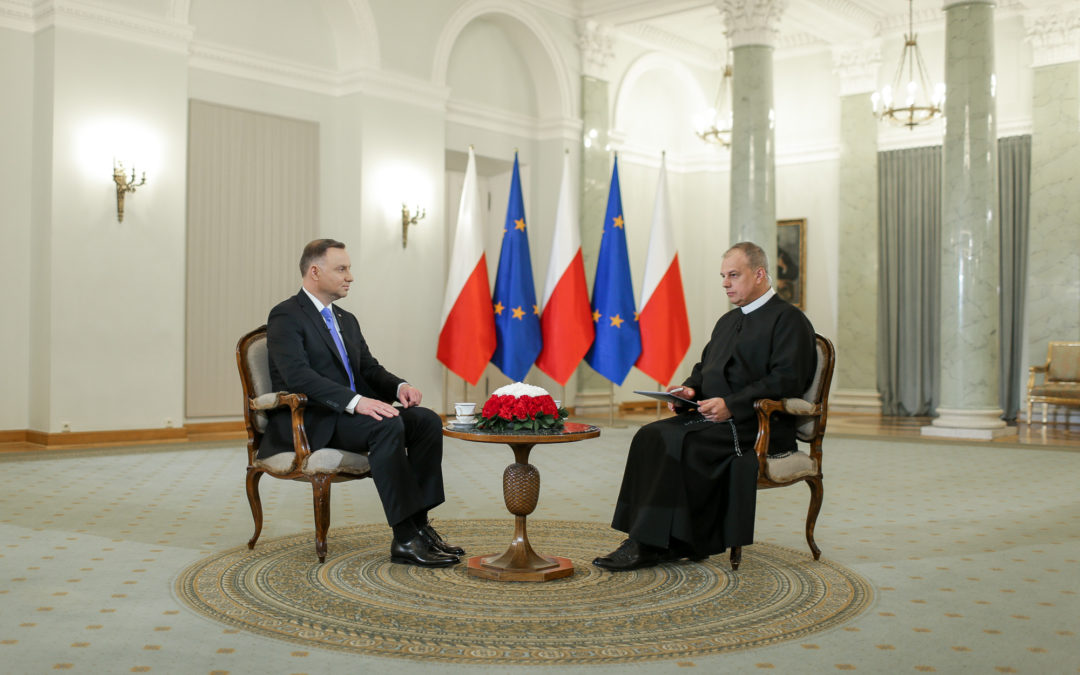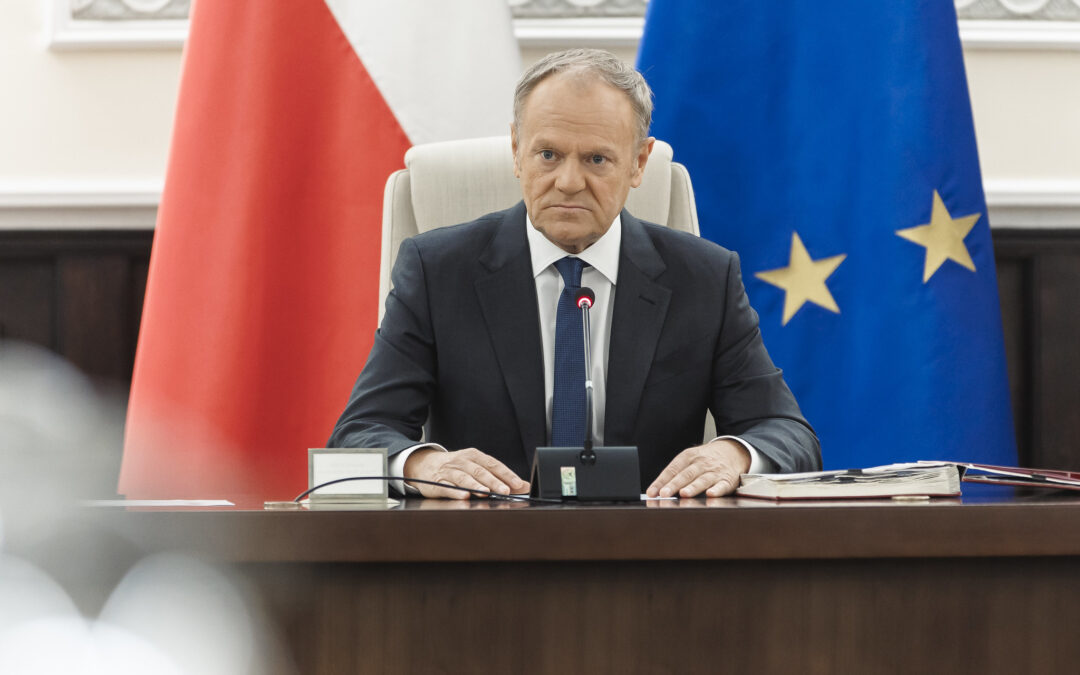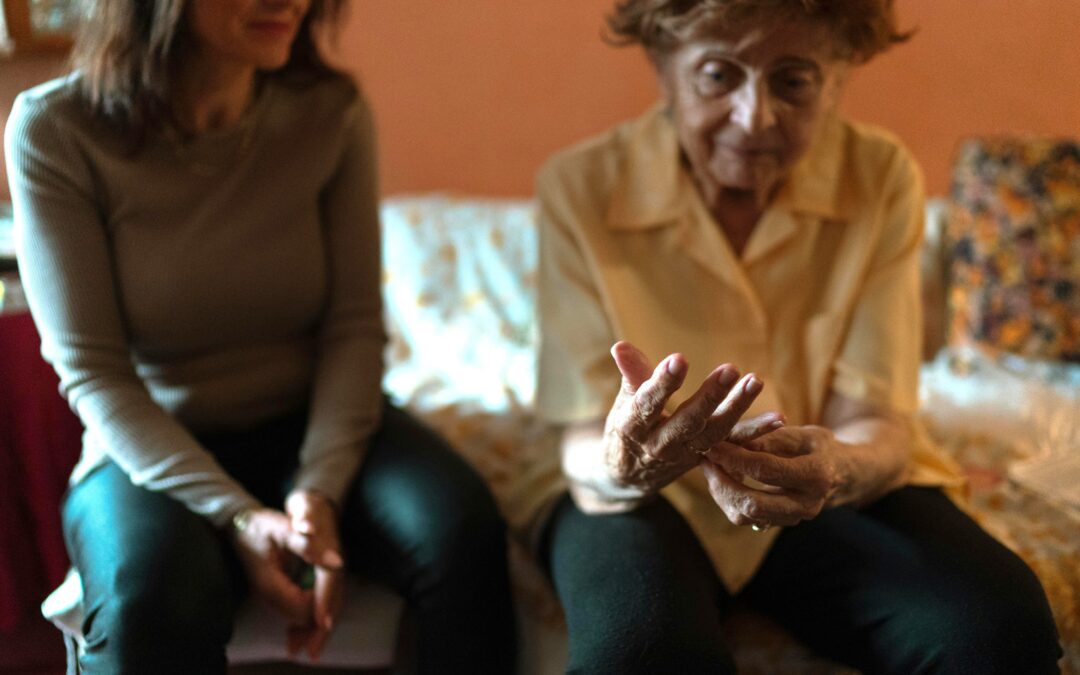Poland’s president, Andrzej Duda, says that he and the government are “cleansing Poland of dirt” by removing “certain people” from positions of influence. His words follow recent similar remarks about “eliminating black sheep amongst judges” and the need to “cleanse our Polish home completely”.
The president’s latest comments came during an interview with Catholic broadcasters Radio Maryja and TV Trwam, which are part of the media network linked to Father Tadeusz Rydzyk, an influential priest and ally of the ruling Law and Justice (PiS) party.
Duda, who is standing for reelection this year, told listeners that it has “not [been] an easy process” dealing with the legacy of decades of communist rule. “It wasn’t like 1989 caused a sudden change here,” he said. “There were certain people who had been beneficiaries of that system for decades.”
“We are still today cleansing Poland of all kinds of dirt that was introduced by that era,” Duda continued. “There are still elements from the former era that must be removed, replacing them with new tissue.”
Thanks to these efforts, “Poland is changing for the better” and “increasingly becoming a modern, democratic country”, said Duda. But he added that it is vital for people to “mobilise their families, neighbours and friends to go to the polls during the presidential election” to vote “for the good of Poland”.
During the interview, Father Rydzyk himself called in to the show. He “congratulated” Duda on his “strength” but said there is “still a lot to be done”, including dealing with “gender in Polish schools” (a reference to anti-LGBT efforts) and “repolonising liberal-left media”. Rydzyk therefore “hopes that pro-Polish forces” win the election.
Prezydent @AndrzejDuda w @TV_Trwam: Zadań do wykonania w Polsce jest jeszcze ogromnie dużo. Jest jeszcze wiele elementów właśnie z poprzedniej epoki, które trzeba usunąć zastępując je nową tkanką. pic.twitter.com/NnUPDijIeI
— Radio Maryja (@RadioMaryja) May 31, 2020
The president’s words reflect an idea central to the platform of the PiS party from which he hails. The party and its leader, Jarosław Kaczyński, argue that Poland did not become truly independent after 1989. Instead, the communist elites and some elements among the opposition came to an arrangement that allowed “post-communists” to remain in influential positions in politics, the judiciary, the economy and the media.
Since returning to power in 2015, PiS has justified its controversial overhaul and purges of the judiciary, public media and other institutions by arguing that it is “decommunising” the system.
“Our current policy is aimed at changing the post-communist order in Poland,” said Kaczyński recently, “and the beneficiaries of this system are fighting to maintain their influence.”
In this election year, President Duda has repeatedly referred to these efforts. In January, he attacked the “judicial elites” that are obstructing reform of the courts and said that “black sheep among judges must be eliminated”.
Soon after, he said that Poles must “cleanse our Polish home completely” by making it “clean, well-ordered and beautiful” and ensuring that judges “understand what their real role is”.
Critics point out that, in fact, a “decommunisation” process did take place in the 1990s. Of the 23 judges PiS and Duda sought to purge from the Supreme Court, only three had adjudicated during the communist era.
Moreover, PiS and Duda then appointed a judge to the Constitutional Tribunal who had previously served as a state prosecutor during communist-era martial law. He was involved in a case against an opposition dissident and received state honours from the communist authorities for his work.
That judge, along with another appointed by Duda at the same time, was also a former PiS MP, and opponents argue that the actual purpose of the judicial overhaul is to take political control of the courts.
Last week, Duda appointed a former deputy justice minister as the new head of the Supreme Court, overlooking another candidate who had the support of twice as many judges.
Main image credit: Prezydent.pl

Daniel Tilles is editor-in-chief of Notes from Poland. He has written on Polish affairs for a wide range of publications, including Foreign Policy, POLITICO Europe, EUobserver and Dziennik Gazeta Prawna.




















